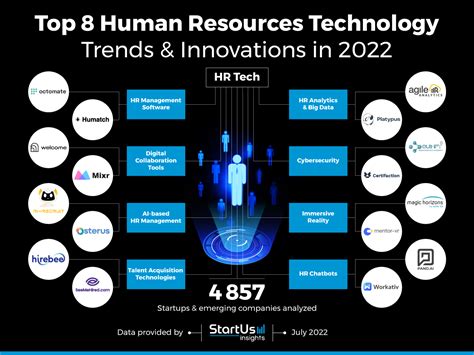The world of work is undergoing a significant transformation, driven by technological advancements, shifting workforce demographics, and evolving employee expectations. As organizations strive to stay competitive and adapt to these changes, HR tech jobs have become a crucial component of the modern workforce management landscape. In this article, we'll explore the importance of HR tech jobs, their impact on the future of work, and the various roles and skills required to succeed in this field.
The Rise of HR Tech
Human Resources (HR) has long been a vital function within organizations, responsible for managing employee relationships, benefits, and training. However, the rise of technology has significantly expanded the scope of HR, enabling organizations to streamline processes, improve efficiency, and enhance the overall employee experience. HR tech jobs have emerged as a result of this convergence, requiring professionals to possess a unique blend of HR expertise, technical skills, and business acumen.
The Benefits of HR Tech Jobs
HR tech jobs offer numerous benefits to organizations, including:
- Improved Efficiency: Automation and digitization of HR processes enable organizations to reduce administrative burdens, freeing up resources for more strategic and creative endeavors.
- Enhanced Employee Experience: HR tech jobs focus on creating personalized and engaging experiences for employees, from onboarding to retirement, leading to increased job satisfaction and retention.
- Data-Driven Decision Making: HR tech professionals analyze vast amounts of data to provide insights on workforce trends, talent pipelines, and performance metrics, enabling organizations to make informed decisions.
- Increased Agility: HR tech jobs enable organizations to respond quickly to changing market conditions, new technologies, and shifting workforce demographics.
Key HR Tech Jobs and Skills
As the field of HR tech continues to evolve, several key roles have emerged, requiring distinct skills and expertise:
- HRIS Analyst: Responsible for implementing, maintaining, and analyzing HR information systems (HRIS), these professionals require technical skills in data analysis, system administration, and software development.
- Talent Acquisition Specialist: Focused on leveraging technology to streamline recruitment processes, these professionals need expertise in social media marketing, candidate relationship management, and predictive analytics.
- Employee Experience Manager: Charged with creating engaging and personalized experiences for employees, these professionals require skills in user experience design, change management, and data analysis.
- Workforce Analyst: Responsible for analyzing workforce data to provide insights on talent pipelines, performance metrics, and market trends, these professionals need expertise in data visualization, statistical analysis, and machine learning.
The Future of HR Tech Jobs
As technology continues to shape the world of work, HR tech jobs will become increasingly important in driving organizational success. Some emerging trends in HR tech include:
- Artificial Intelligence (AI): AI-powered tools will enable organizations to automate routine tasks, predict employee behavior, and personalize the employee experience.
- Blockchain: Blockchain technology will enable secure and transparent management of employee data, credentials, and benefits.
- Virtual Reality (VR): VR will revolutionize training and development programs, enabling employees to engage in immersive and interactive learning experiences.
Preparing for a Career in HR Tech
As HR tech jobs continue to evolve, professionals must develop a unique blend of skills and expertise to succeed. Some essential steps to prepare for a career in HR tech include:
- Developing Technical Skills: Acquire expertise in programming languages, data analysis, and software development to stay competitive in the HR tech job market.
- Staying Up-to-Date with Industry Trends: Engage with industry leaders, attend conferences, and participate in online forums to stay informed about the latest HR tech trends and innovations.
- Building Business Acumen: Develop a deep understanding of business operations, including finance, marketing, and strategy, to effectively communicate with stakeholders and drive organizational success.
Conclusion
HR tech jobs are transforming the way organizations manage their workforce, from recruitment and onboarding to training and development. As technology continues to shape the world of work, professionals must develop a unique blend of HR expertise, technical skills, and business acumen to succeed. By understanding the benefits of HR tech jobs, the key roles and skills required, and the emerging trends shaping the industry, professionals can position themselves for success in this rapidly evolving field.
Gallery of HR Tech Jobs






FAQ Section
What is the role of HR tech in modern workforce management?
+HR tech plays a crucial role in modern workforce management by streamlining processes, improving efficiency, and enhancing the employee experience. It enables organizations to leverage data-driven insights, automate routine tasks, and personalize the employee journey.
What skills are required to succeed in HR tech jobs?
+To succeed in HR tech jobs, professionals require a unique blend of HR expertise, technical skills, and business acumen. Key skills include data analysis, software development, user experience design, and change management.
How can organizations prepare for the future of HR tech?
+Organizations can prepare for the future of HR tech by staying up-to-date with industry trends, investing in employee development, and embracing emerging technologies such as AI, blockchain, and VR.
